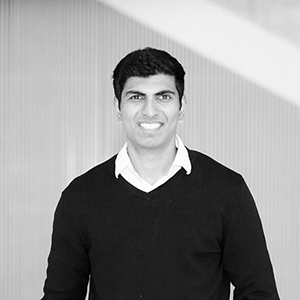Shaping the Future of Computer Vision & Graphics, con Victoria Fernández Abrevaya y Achuta Kadambi
Viernes 6/9, 10.30h
El Centro de Inteligencia Artificial y
Neurociencia de la Universidad Torcuato Di Tella (CIAN Di Tella) tiene el agrado de invitar a
la comunidad a un seminario especializado a cargo de dos referentes en el campo de la visión por computadora: Victoria Fernández Abrevaya y Achuta Kadambi.
El seminario contará con dos bloques de
exposiciones:
"Neural approaches for inverse
graphics", por Victoria
Fernández Abrevaya.
Abstract
Traditional computer graphics focus on generating images from 3D
assets, where the scene is defined by each object’s geometric representation,
material properties, and the overall illumination. The opposite task, known as
inverse graphics, involves recovering these properties from a single, natural
image. The field of inverse graphics has recently made impressive progress,
thanks to novel neural techniques ranging from implicit representations and
neural rendering, to the use of foundational models for text and text-to-image
(e.g Stable Diffusion). In this talk, I will present two of our recent works on
the topic of inverse graphics. First, I will discuss an approach for generating
a high-quality avatar of a person's head from a single monocular video. This
method combines classic rendering techniques with novel neural approaches to produce
a detailed geometry of the person’s face, along with an animation model and
material properties. The resulting avatar can be manipulated to generate novel
poses and inserted seamlessly into new scenes, demonstrating the potential of
hybrid approaches in achieving realistic digital humans.Second, I will present
a work that leverages large-language models to reconstruct the objects within a
scene. By analyzing a single image, our method generates pseudo-code that
describes the discrete properties, locations, and orientations of each object
primitive. Although the results focus on relatively simple experimental setups,
they illustrate the remarkable potential of foundational models to tackle
traditionally complex problems in scene understanding and reconstruction.

Victoria Fernández Abrevaya es investigadora postdoctoral en el Max Planck
Institute for Intelligent Systems, Alemania, en el grupo del Dr. Michael J.
Black. Sus temas de investigación se centran en la visión por computadora 3D, y
en el modelado y análisis de rostros tridimensionales. Antes de eso, realizó su
doctorado en Inria, Grenoble, donde trabajó en modelos generativos 3D para el
rostro. Victoria es egresada de la Universidad de Buenos Aires, donde estudió Ciencias de la
Computación.
Website: https://is.mpg.de/~vabrevaya
"Toward ´Sensing for All´ in Computer Vision and Graphics Pipelines", por Achuta Kadambi.
Abstract
Vision pipelines do not work for everyone. Today, billions of
light-based medical sensors are used by hospitals to measure quantities like
blood flow, temperature, oxygenation and more. Unfortunately, the accuracy of
light-based devices varies across demographics. Just as a soap dispenser may
not always work for those with dark skin, a light-based medical device has
fundamental challenges with signal-to-noise (SNR) ratio, and measurement accuracy.
To address this problem, we need to rethink the sensing process, a. We draw
from a paradigm of “equitable computational imaging”, where we co-design the
optical sensing and computation layers to resist bias. Removing biases in both
hardware and software, attacks the root causes of bias at the physical layer
(e.g. light-based reflections). We will discuss new types of equitable imaging
systems that measure heart rate and blood volume (contact-free and wirelessly);
synthetic data pipelines that model melanin content; and theoretical results on
dataset composition.

Achuta Kadambi Achuta Kadambi (PhD, MIT ‘18) es Profesor Asociado en la Universidad de California en Los Ángeles (UCLA) en Ingeniería Eléctrica y Ciencias de la Computación. Lidera un grupo de investigación en la intersección de visión por computadora, física, procesamiento digital de imágenes, inteligencia artificial y dispositivos médicos. Ha recibido numerosos premios, incluidos el NSF (CAREER), DARPA (YFA), ARO (YIP), IEEE (premio HKN para menores de 35 años) y Forbes (30 menores de 30). Ha cofundado dos empresas en California para comercializar tecnologías de investigación. Una de ellas, Akasha Imaging, fue adquirida por Alphabet por su tecnología de automatización robótica. La otra es Vayu Robotics, que trabaja en la navegación de robots impulsados por la percepción. Kadambi ha coescrito recientemente un libro de texto de acceso abierto sobre Procesamiento Computacional de imágenes.
Website: https://www.ee.ucla.edu/achuta-kadambi/
*El seminario se dictará en idiomas inglés, sin traducción simultánea.
Contacto: Escuela de Negocios
